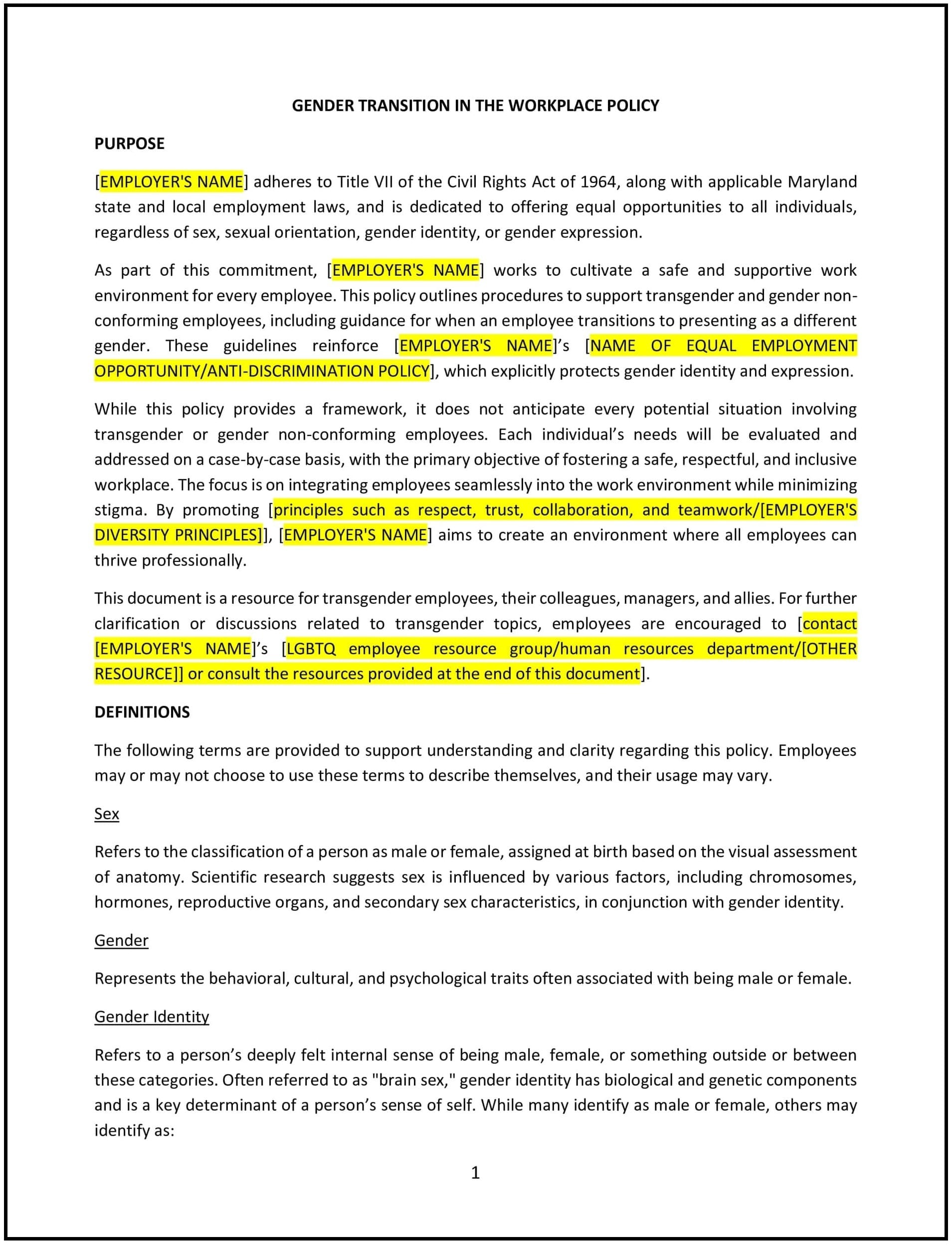Gender transition in the workplace policy (Maryland): Free template
Got contracts to review? While you're here for policies, let Cobrief make contract review effortless—start your free review now.

Customize this template for free
Gender transition in the workplace policy (Maryland)
This gender transition in the workplace policy is designed to help Maryland businesses support employees undergoing a gender transition. It provides guidelines for fostering an inclusive and respectful work environment, addressing privacy, accommodations, and communication to ensure a smooth transition process.
By adopting this policy, Maryland businesses can demonstrate their commitment to diversity, equity, and inclusion while supporting employees through important life changes.
How to use this gender transition in the workplace policy (Maryland)
- Define key terms: Provide clear definitions for terms like gender identity, gender transition, and preferred pronouns to establish understanding.
- Outline support processes: Specify how employees can access support, such as by contacting HR or a designated employee resource group.
- Ensure privacy: Emphasize the confidentiality of personal information, including medical details and gender identity discussions.
- Address workplace adjustments: Detail accommodations like updating employee records, name tags, or workspaces to reflect the employee’s gender identity.
- Provide training: Implement training for managers and employees to foster understanding and prevent discrimination or harassment.
- Establish communication plans: Collaborate with transitioning employees to plan workplace announcements or discussions if desired.
- Reflect Maryland-specific considerations: Include protections provided under Maryland laws, such as those under the Maryland Fair Employment Practices Act.
Benefits of using this gender transition in the workplace policy (Maryland)
Implementing this policy provides Maryland businesses with several advantages:
- Fosters inclusivity: Creates a supportive environment where employees feel valued and respected.
- Reduces discrimination: Reinforces the business’s commitment to equitable treatment and zero tolerance for harassment.
- Enhances employee retention: Demonstrates support for employees, promoting loyalty and job satisfaction.
- Promotes legal alignment: Aligns with Maryland anti-discrimination laws and workplace equality standards.
- Improves workplace culture: Encourages open dialogue and understanding, strengthening workplace relationships.
Tips for using this gender transition in the workplace policy (Maryland)
- Communicate support: Let employees know about available resources, such as HR contacts or support groups.
- Maintain flexibility: Work collaboratively with transitioning employees to address their unique needs and preferences.
- Educate the workforce: Provide training on gender identity, pronouns, and workplace inclusivity to prevent bias or misunderstandings.
- Update systems: Ensure workplace records and systems can accommodate changes in names, pronouns, or other gender-related updates.
- Stay informed: Reflect changes in Maryland laws or best practices in the policy to remain current.